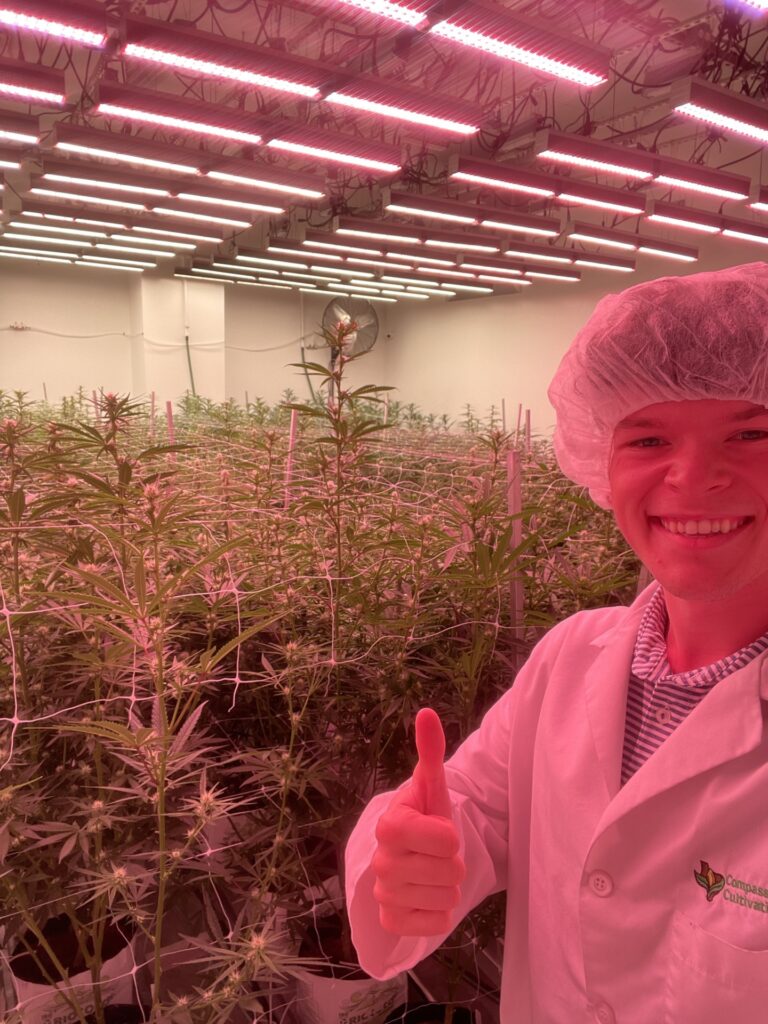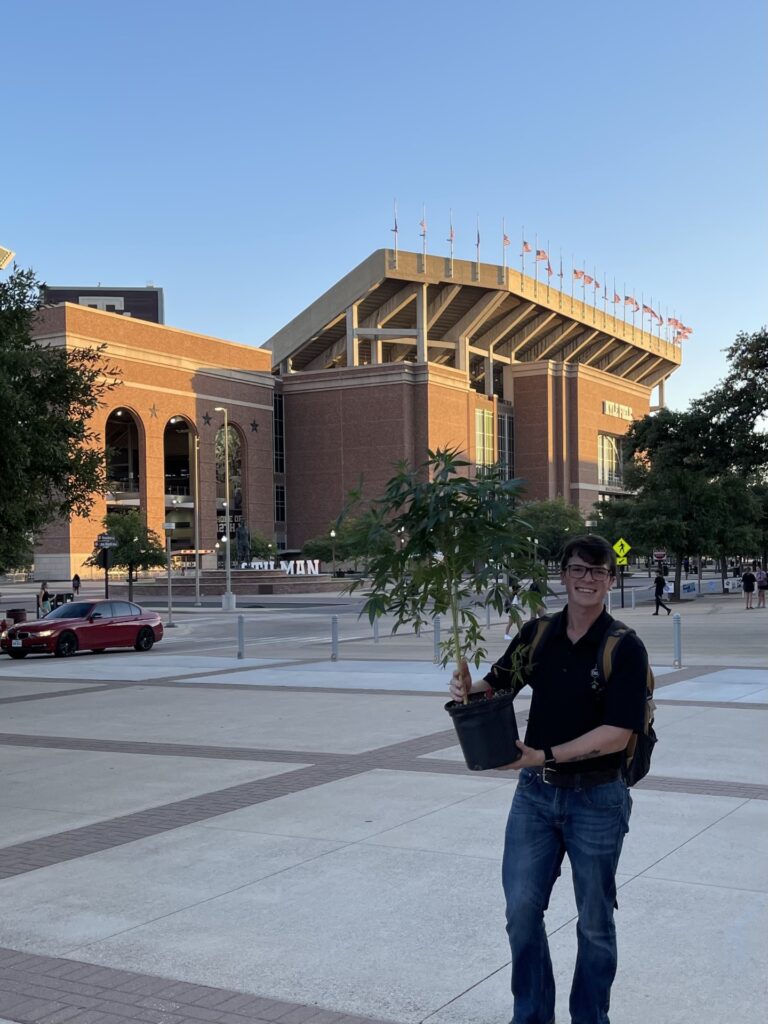Clayton Moore: Seventh generation farmer sees future in hemp
Department of Soil and Crop Sciences senior aims to aid rural farms
A student choosing to attend Texas A&M University when they come from generations of Aggies is probably no surprise. As a seventh-generation farmer, Clayton Moore’s choice of the College of Agriculture and Life Sciences Department of Soil and Crop Sciences was also probably not an unexpected one.
But his field of study – hemp – is a different story.

Born in Victoria, Moore grew up on his family’s cattle ranch in Palacios. He knew he’d someday work in the agricultural field. His desire was to make a significant contribution to the world, and that led him to hemp.
“I firmly believe in hemp’s potential to rejuvenate rural economies and wish to underline the industry’s need for more comprehensive academic resources,” Moore said. “I regard Texas A&M as the premier agricultural institution globally. Their initiation of the Industrial Hemp Breeding Program was fortuitous timing, given my keen interest in this area.”
Moore, who will graduate in 2024, is working to create new varieties of hemp plants that can withstand tough Texas growing conditions including heat and drought, while ensuring cultivars remain compliant with state cannabis regulations. The program’s goal is to release 100 cultivars by 2025.
Moore shared more with us his passion for being a part of the fledgling hemp industry and his plans for the future.
Can you elaborate on your chosen field of study? Why this field?
I gravitated toward hemp due to its untapped potential as a multifunctional agricultural crop. From producing sustainable fibers to offering nutritional and medicinal properties, its versatile applications drew me in.
Why did you choose the College of Agriculture and Life Sciences Department of Soil and Crop Sciences?
My aspiration is to make a significant impact in feeding, clothing and healing the world. With my lineage tracing back to seven generations of farmers, the Department of Soil and Crop Sciences naturally became my choice, being an ideal platform to achieve these goals. The College’s unique contribution to plant breeding, especially its nascent work with hemp under Dr. Russell Jessup, has captivated my interest.
Do you have a favorite class? Which class is it and why?

“Plant Breeding” stands out for me. My involvement with the Industrial Hemp Breeding Program deepened my affection for plant breeding, particularly with hemp.
What drives your enthusiasm for hemp breeding/production?
Hemp breeding is a relatively uncharted territory, with limited academic resources compared to established crops. My zeal lies in advancing this sector and assisting farmers with superior genetic resources tailored to the plants’ unique requirements.
How are you involved in research as an undergraduate student?
I have actively contributed to the Industrial Hemp Breeding Program’s research since Fall 2021. I spearhead the Hemp Conversion Program, which aims to foster an open-source germplasm collection, incorporating diverse genetic elements of hemp. This initiative received a U.S. Department of Agriculture–Agricultural Research Service, USDA-ARS, grant for its expansion, anticipating significant benefits for various stakeholders.
What do you find most rewarding about your lab work and research involvement?
Collaborating with distinguished professors and like-minded peers, continually challenging my boundaries, and being part of a prestigious research entity such as Texas A&M fuels my passion for knowledge.
What activities are you involved in outside the classroom? How have these activities influenced you?
I founded the Cannabis Hemp Innovation League, CHIL, with Meredith Clay and Ian McGrath to enlighten both students and the public about hemp’s multifaceted applications. We had over 800 students in attendance over our 14 meetings and have 74 active members from 51 diverse majors. I’m proud of my fundraising achievements for CHIL of over $10,000 for scholarships and field trips, and insightful speaker interactions with industry leaders.
My participation as an SCSC department representative in the College’s Council, Agronomy Society, Plant Breeding and Genetics Circle, and sponsorship activities with Ducks Unlimited in Victoria have honed my leadership, networking and philanthropic skills, all vital for my future entrepreneurial aspirations.

What are your future aspirations in this field?
Post graduation, I aim to pursue a doctorate in molecular and environmental plant sciences. A decade from now, I envision owning an integrated operation spanning cultivation, extraction and product development.
Can you share more about the Hemp Conversion Program?
The Hemp Conversion Program was created in the Industrial Hemp Breeding Program to develop an open-source, publicly available germplasm collection. To include significant levels of the genetic diversity within hemp, Cannabis sativa L., we requested donations of miniscule quantities — one male flower less than one milligram of pollen — to cross with our drought/heat tolerant lines for fibers, grains and cannabinoids.
The generated breeding populations are compliant hemp, which means they must be less than 0.3% tetrahydrocannabinol, or THC, and the program was awarded a $200,000 USDA-ARS grant to expand into a Compliant Hemp Accelerated Improvement Network, C.H.A.I.N. The project will greatly benefit plant breeders, seed industries, producers, government agencies, private individuals and other stakeholders. We believe that industrial hemp has the potential to economically revitalize rural communities.
What is one of your favorite memories of your time at Texas A&M so far?
A dual recollection of being honored with the Soil and Crop Sciences Departmental Undergraduate Student Research Award in 2022, and the euphoria of defeating Alabama in 2021 at Kyle Field, followed by the exhilarating field rush.


